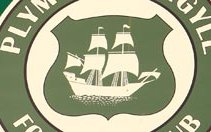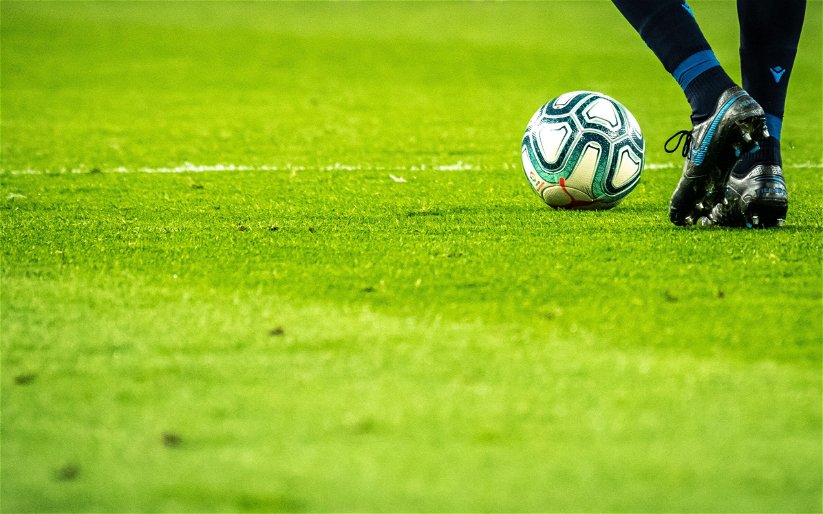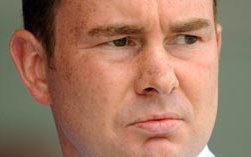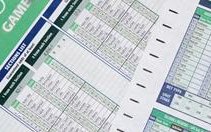It’s back to the late 1950’s and early 60’s for the latest chapter in the Where Are They Now series with a look at the career of George Baker.
GEORGE BAKER – Born 6th April 1936 Maerdy, Wales.
Born Thomas George Baker he was known throughout football as George Baker. Although he was brought up in the Rhondda Valley to a coal mining father George decided to try his hand at football rather than work down the pit.
In 1952 he was offered a month’s trial by Argyle manager Jimmy Rae which must have been a success as he spent the next seven years at the club.
George started out as a winger but was soon converted to a centre forward. He progressed through the Plymouth & District League, Western League and the Football Combination sides until he made his debut on 23rd October 1954 in a 2-1 defeat at home to Nottingham Forest with Peter Anderson scoring the Argyle goal.
Unfortunately for George he was now eighteen and was required to do his two years National Service which severely limited the amount of games he could play.
Throughout the 1955-56 season he was only able to make 9 appearances. Argyle didn’t do too well either, finishing one place above bottom club Hull and both were relegated.
The following season was no better either with George making only eight appearances all season.
Although he didn’t start the 1957-58 season as a regular first team player he established himself in the first eleven at the end of the year.
His first goal came on Christmas Day in a 2-0 win at Newport with Jimmy Gauld scoring the second. After also winning the reverse fixture the following day 1-0 thanks to a Wilf Carter goal in front of 25,936 fans, Argyle’s biggest gate of the season.
George scored his second two days later in a 3-3 draw at Aldershot with Wilf Carter scoring twice. George also scored in the next two games as well, the first in a 2-2 draw at home to Swindon and the following Saturday he scored the only goal of the game in a 1-0 win at Millwall.
At the end of February he scored the third goal in a 3-0 win at home to Northampton after Johnny Williams and Wilf Carter had scored the first two goals.
His next came the following Saturday in a 2-0 win at Watford, George scored the second after Johnny Williams had opened the scoring. George and Wilf Carter both finished the season in style, both scoring in the last three games, in each game Wilf scored the first goal.
On Easter Saturday they beat Walsall 2-1 at Home Park and two days later lost 3-2 at home to Southend and the next Saturday as they beat Southend 2-1 at Roots Hall. A much improved Argyle finished the season in third place.
As a result of his performances George was selected to play for Wales in an Under-23 game against England at Wrexham. With England boasting a forward line that included Jimmy Greaves, who already had scored five goals from four appearances for theU23 team, Brian Clough and Alan A’Court, Wales weren’t expected to do very well. At half time Wales were leading 1-0 and despite a goal from Brian Clough Wales ended up winning the game 2-1 to send the majority of the 20,000 crowd home happy.
It was the first time Wales had beaten England at U-23 level.
As a reward for his performance on his Wales debut he was called up into the Welsh squad for the 1958 World Cup in Sweden. Wales performed above expectations, reaching the quarter finals but George was not called on to play. He won a second U-23 cap in December with Wales beating Scotland 1-0.
With Argyle finishing third the previous season the fans expected great things from the 1958-59 season, and the team didn’t disappoint them, only losing once in the first twenty games.
George opened his goalscoring account for the season on 30th August in a 4-0 win at home to Tranmere with Wilf Carter (2) and Jimmy Gauld also scoring. At the end of October George scored in three successive games. The first came in a 3-0 win at home to Notts County, after he got the first Jimmy Gauld and Harry Penk made the game safe.
The following Saturday he again scored the first goal in a 2-1 win at Chesterfield with Wilf Carter scoring the decisive second goal.
On 8th November George once more scored the first goal, this time in a 3-2 win at home to Newport with Jimmy Gauld scoring the other two goals.
George’s next goal came in a FA Cup second round game against Coventry at Highfield Road with Argyle winning 3-1 after George had opened the scoring two goals from Wilf Carter saw Argyle into the third round.
His next came in a 2-1 win at home to Stockport after Alex Govan had scored the first.
Two weeks later George scored his seventh goal in a 2-0 win at Reading with Alex Govan again scoring the first goal. As Easter approached Argyle lost their way a bit, only scoring eight goals in their last eight games, one in every game, they won three of them 1-0 and drew the other five 1-1. Despite this blip Argyle finished the season as Champions and returned to Division 2.
After the success of the previous year George started 1959-60 season well, scoring in the first home game, a 4-0 beating of Scunthorpe, he scored the third goal with Wilf Carter (2) and Harry Penk also on the scoresheet.
It would be the last goal he would score for the club. After playing in 0-0 draw at home to Sunderland on 24th October he sustained a serious knee injury that brought his Home Park career to a close.
He remained at Argyle until 1961 when Arthur Rowley the Shrewsbury player/manager and brother of the Argyle manager Jack offered George a fresh start at Gay Meadow.
While at Argyle George made 83 appearances and scored 17 goals.
During his time at Shrewsbury George played in the game where Arthur Rowley scored his 380th Football League goal in a game against Bradford Park Avenue, beating Dixie Dean’s long standing record, Arthur went on to score another 54 goals to finish his career on 434 goals from 619 appearances.
George continued to play despite a continuing knee problem but at the end of the 1962-63 season left Shrewsbury to join Barry Town who were playing in the Southern League.
While at Shrewsbury George made 52 appearances and scored five goals.
After retiring from football George worked for Massey Ferguson and finished off working for the National Coal board in his native Wales where he still continues to live.
plymouthvital@aol.co.uk
Share this article



